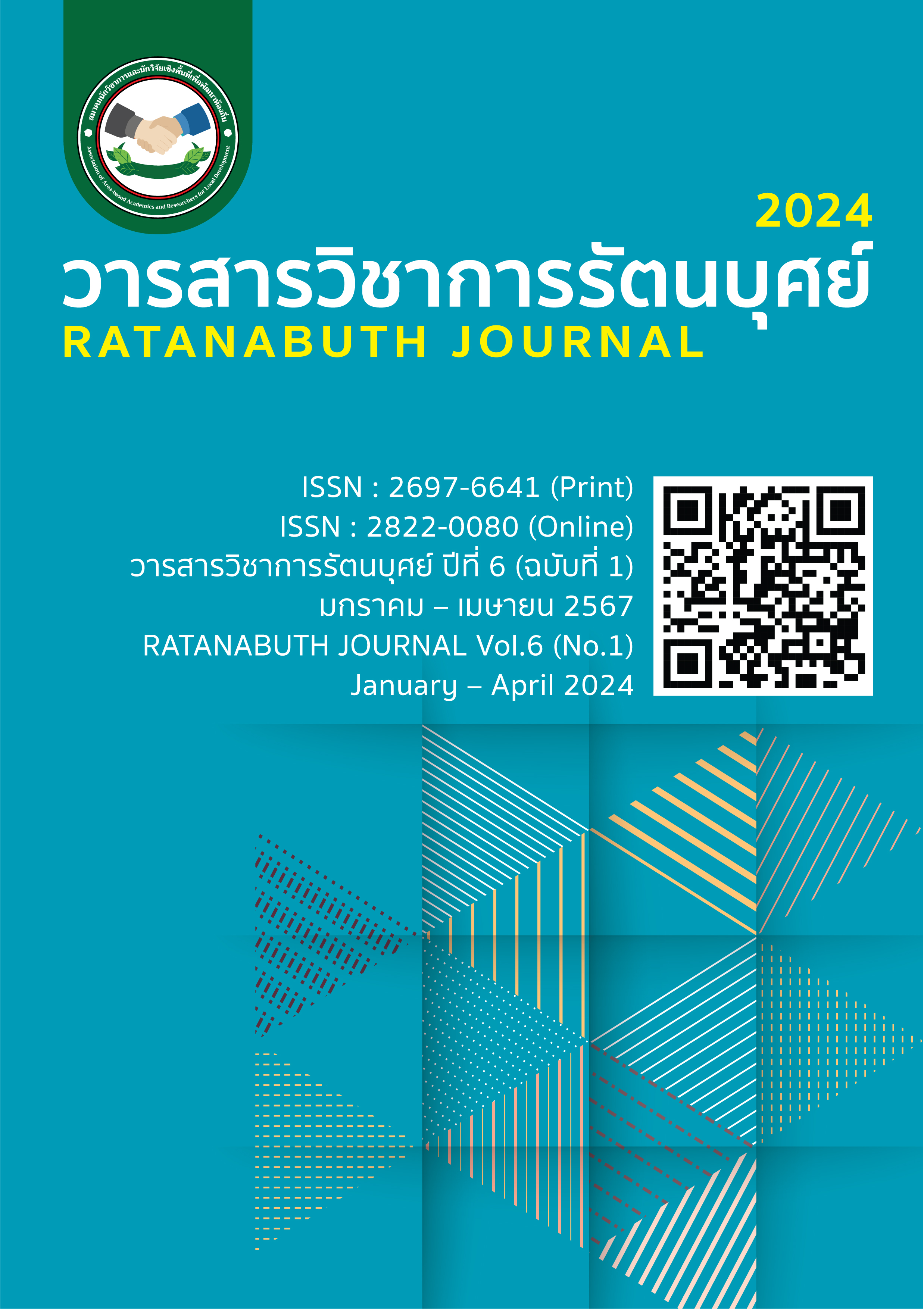Towards Excellence in Educational Management: The Application of Brahmavihāra Principles Towards Excellence in Educational Management: The Application of Brahmavihāra Principles
Main Article Content
Abstract
In the modern world where education must experience continuous change. School administrators need a management approach that is both flexible and ethical. This article therefore intends to explore the application of the four brahmavihāra principles of metta (love and goodwill), karuna (kindness), mudita (delight in the success of others), and equanimity (neutrality) in management. educational institution To promote morality and ethics to executives Taking into account that leadership is like the captain of a ship leading the crew towards the set goals. The content of the article will focus on the importance of these principles in governing people and their appropriate application to situations within educational institutions in an era facing continuous change. It also gives administrators an opportunity to review and improve management methods to meet and align with the changing needs of students and teachers in today's era.
Article Details

This work is licensed under a Creative Commons Attribution-NonCommercial-NoDerivatives 4.0 International License.
References
กระทรวงศึกษาธิการ.(2549).การพัฒนาโรงเรียนสู่ความเป็นเลิศ.กรุงเทพฯ: ไทยวัฒนาพานิช.
กิตติคุณ สุขสมบูรณ์. (2563). การจัดการคุณภาพเพื่อความเป็นเลิศในองค์กร. กรุงเทพฯ: สำนักพิมพ์ศิริไพบูลย์.
จินตนา ศักดิ์ภู่อร่าม. (2545) การนำเสนอรูปแบบการบริหารโรงเรียนในกำกับของรัฐ สำหรับประเทศไทย. กรุงเทพฯ: จุฬาลงกรณ์มหาวิทยาลัย.
ชาญชัย อาจินสมาจาร.(2555). การบริหารการเปลี่ยนแปลงและการพัฒนาองค์การ.สงขลา:ชานเมืองการพิมพ์.
โชติช่วง พันธุเวส. (2551). แม่แบบการจัดการศึกษาเชิงคุณภาพ SIPPO MODEL.กรุงเทพฯ: ศูนย์สื่อและสิ่งพิมพ์แก้วเจ้าจอม มหาวิทยาลัยราชภัฏสวนสุนันทา.
ทิศนาแขมมณี. (2555). ศาสตร์การสอนเพื่อการจัดกระบวนการเรียนรูที่มีประสิทธิภาพ. (พิมพ์ครั้งที่16). กรุงเทพฯ: จุฬาลงกรณมหาวิทยาลัย.
พระไตรปิฎก. (2500). คารุณียสูตร. ใน พระไตรปิฎกฉบับหลวง, สุตตนิปาต, ขันธ์สูตรนิกาย กรุงเทพฯ: กระทรวงศึกษาธิการ.
พระพรหมคุณาภรณ์ (ป.อ. ปยุตฺโต). (2548). พจนานุกรมพุทธศาสตร์ฉบับประมวลธรรม. (พิมพ์ครั้งที่ 12). กรุงเทพฯ: บริษัท สหธรรมิก จํากัด.
วิโรจน์ สารรัตนะ. (2565). การบริหาร หลักการ ทฤษฎี ประเด็นทางการศึกษาและบทวิเคราะห์องค์กรทางการศึกษาไทย.วารสารศึกษาศาสตร์ มหาวิทยาลัยนเรศวร. 20 (1), 261-271.
สุกัญญา โฆวิไลกูล. (2547). การวิเคราะห์ระบบเพื่อการบริหารสถาบันอุดมศึกษา. กรุงเทพฯ: โรงพิมพ์แห่งจุฬาลงกรณมหาวิทยาลัย.
สำนักงานเลขาธิการคุรุสภา. (2549). การจัดการองค์กรทางการศึกษา.กรุงเทพฯ: โรงพิมพ์คุรุสภา.
ASEAN University Network (AUN) (2022). AUN-QA guidelines for quality assurance. Retrieved from https://aunsec.org/.
Beach, Dale S. (1980). Personnel: The Management of People at Work. New York: Macmillan Publishing Company.
Bounds, Greg. (1994). Beyond Total Quality Management. New York: McGraw-Hill.
Drucker, P.F. (1998). The Age of Discontinuity. Reprinted Edition, Butterworth-Heinemann, Oxford.
Gardner, H. (1983). Frames of Mind: The Theory of Multiple Intelligences. New York: Basic Books.
Newman. H.W. (1963). Administrative Action: The Techniques of Organization and Management. Tokyo: Prentice – Hall of Japan.
Northouse, P. G. (2018). Leadership: Theory and Practice. (8th ed.). Thousand Oaks, CA: SAGE Publications.
Sergiovanni, T. (1991). Ten Principles of Quality Leadership. Educational Leadership. 39(5), 331.


